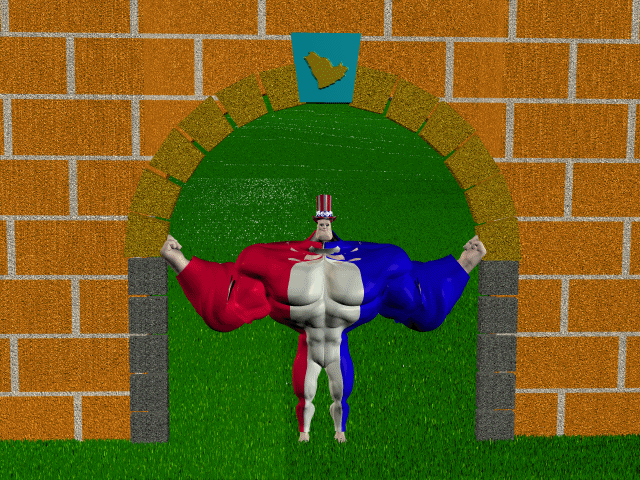Friday, October 06, 2017
Nuclear proliferation
We used Saudi as part of the strategy to collapse the USSR by cutting oil prices and running Osama in Afghanistan. Ever since, we've been paying the debt by obliterating Saudi's enemies. (Which also happen to be Israel's enemies, so we can get double credit for the same genocide.)
Now even Saudi is tired of us.
 When the KEYSTONE OF THE EMPIRE breaks loose, you know the Empire is gone.
When the KEYSTONE OF THE EMPIRE breaks loose, you know the Empire is gone.
The term ‘historic’ is overused. But this time it’s surely merited. The 81-year-old Salman hasn’t ventured to the chilly and autumnal Russian capital to take its waters. The Saudi monarch has instead come to turn a new page in a relationship which has been either non-existent or downright hostile, for decades. Even a year ago, Moscow and Riyadh were poles apart. The Saudis took a dim view of Russia’s ultimately successful intervention in Syria and the Kremlin was critical of the humanitarian situation in Yemen, a conflict overseen by Salman’s son, and heir apparent, Muhammed. But suddenly interests have converged. Riyadh is especially concerned about three fundamental issues for the Kingdom: low oil prices, growing Iranian influence in the Middle East and increasingly erratic US foreign policy. When it comes to the first two, Moscow has considerable clout, and the Kremlin may offer a counterbalance to Washington diplomatically.What does Saudi get from breaking out of the unipolar empire? A chance to break out of Graybill's Law. In the Empire Saudi's skill was cheap oil and nothing else. Saudi is getting tired of the single skill and knows the cheap stuff is starting to run out. Time to learn new skills. Specifically, Saudi gets a billion-dollar deal to broaden its energy industry with Russian help and Russian profit. More nukes. In an earlier era we could have made such a deal, with profit to American companies, but we're too stupid now. We can't even build our own nuke plants.
 When the KEYSTONE OF THE EMPIRE breaks loose, you know the Empire is gone.
When the KEYSTONE OF THE EMPIRE breaks loose, you know the Empire is gone.Labels: se-lu, skill-estate
